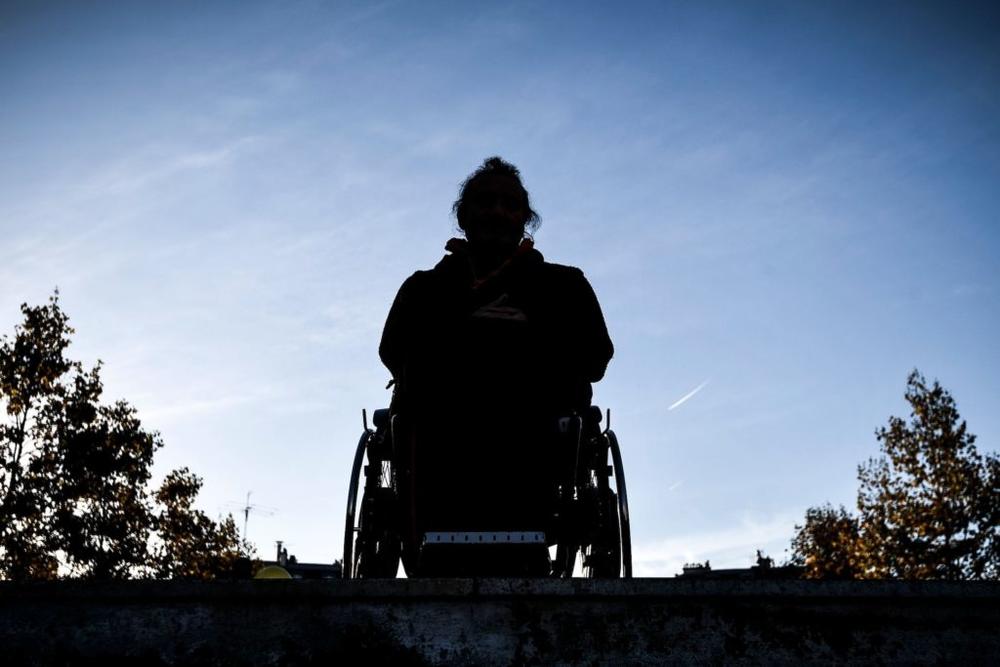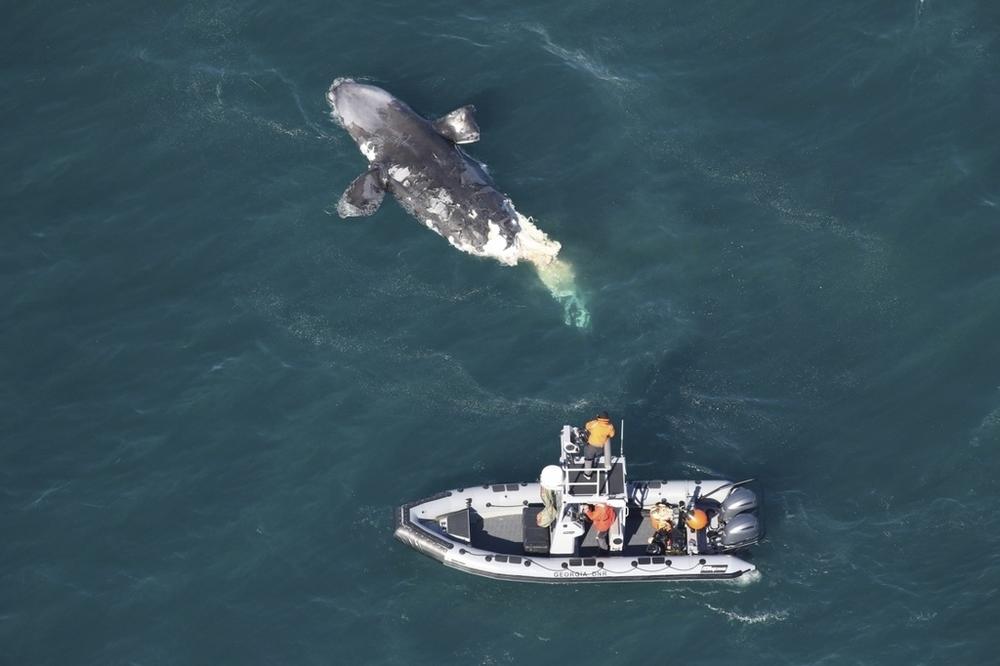
Section Branding
Header Content
Georgia Today: 'Divisive concepts' teacher firing upheld; Okefenokee Mine; Murder case overturned
Primary Content
LISTEN: On the Thursday, Feb. 22 edition of Georgia Today: The state Board of Education has upheld the firing of a Cobb County teacher for teaching so-called "divisive concepts" in the classroom; a proposed mine near Georgia's Okefenokee National Wildlife Refuge is nearing final approval; and the U.S. Supreme Court has overturned a Georgia Supreme Court decision in an unusual case involving a murder in metro Atlanta.

Peter Biello: Welcome to the Georgia Today podcast from GPB News. Today is Thursday, Feb. 22. I'm Peter Biello. On today's episode, the State Board of Education has upheld the firing of a Cobb County teacher for teaching so-called divisive concepts in the classroom. A proposed mine near Georgia's Okefenokee National Wildlife Refuge is nearing final approval, and the U.S. Supreme Court has overturned a Georgia Supreme Court decision in an unusual case involving a murder in metro Atlanta. These stories and more are coming up on this edition of Georgia Today.
Story 1:
Peter Biello: The State Board of Education has upheld a decision by Cobb County Schools to fire an elementary school teacher under the state's so-called Divisive Concepts Law. The local school district fired teacher Katie Rinderle after she read fifth graders a rhyming book challenging gender assumptions. In a 21-page decision released today, the board found the school district, quote, "reasonably lost confidence" in Rinderle for what they called, quote, "poor judgment." Rinderle could appeal the decision in state court.

Story 2:
Peter Biello: Georgia allows employers to pay workers with disabilities well below minimum wage. Some lawmakers are looking to change that. GPB's Sarah Kallis reports.
Sarah Kallis: Georgia employers legally pay adults with disabilities as little as $0.22 per hour. House Bill 1125 would end below minimum wages for disabled workers. Rep. Scott Hilton is one of the bill's sponsors.
Scott Hilton: As the father of a child with a disability, my son, 14 years old, Chase — when he grows up, I want him to work in a happy, healthy, productive job earning a wage what he ought to be paid.
Sarah Kallis: Hilton says on average, people with disabilities make a little over $3 per hour. For GPB News, I'm Sarah Kallis at the state Capitol.
Story 3:
Peter Biello: The U.S. Supreme Court yesterday unanimously overturned a Georgia Supreme Court decision in an unusual case involving a 2012 murder in metro Atlanta's Cobb County. A jury convicted Damian McElrath on one murder charge and acquitted him on another, essentially finding that he was both sane and insane at the same time. The Georgia Supreme Court vacated both verdicts as logically inconsistent, and the state prosecuted him again. McElrath's attorneys argued that amounted to a basic law school case of double jeopardy on the acquittal, and the nation's highest court agreed. In a short decision penned by Justice Ketanji Brown Jackson, the Supreme Court blocked the state's attempt to prosecute McElrath again. A jury found him guilty but mentally ill in the 2012 stabbing of his mother, Diane McElrath.

Story 4:
Peter Biello: Fulton County is putting more than $10 million towards a software upgrade after the county was hit by a ransomware attack a few weeks ago. The Fulton County Board of Commissioners awarded the money to CGI Technologies and Solutions yesterday to upgrade the county's enterprise resource planning, or ERP application. The county IT director says the software is used to pay vendors and employees, and is used in daily interactions with the community. A hacking group called LockBit claimed responsibility for the attack in Fulton County that led to widespread system outages. Earlier this week, U.S. and international law enforcement agencies said they disrupted LockBit's computer system. In an update Tuesday, Fulton County Commission Chairman Rob Pitts said the county is continuing to restore services.
Story 5:
Peter Biello: Georgia abortion opponents gathered outside the Gold Dome today for their annual March for Life. State Attorney General Chris Carr was among the speakers addressing the crowd. He vowed to continue fighting a legal challenge to a 2019 Georgia law, which made the procedure illegal after about six weeks of pregnancy.
Chris Carr: And make no mistake, we will continue to vigorously defend the constitutionality of Georgia's Life Act in court, and I am confident that we will be successful.
Peter Biello: The Georgia Supreme Court in October allowed the law to stand, while a challenge against it, based on a state constitutional right to privacy, moves forward.
Story 6:
Peter Biello: As a proposed mine near Georgia's Okefenokee National Wildlife Refuge nears final approval, state lawmakers are considering a three-year moratorium on new permits to allow the mine to expand. Supporters of the measure call it a compromise, but opponents, including attorney Bill Sapp of the Southern Environmental Law Center, says it doesn't protect the swamp.
Bill Sapp: House Bill 1338 does not stop current mining or future mining. It's essentially a meaningless moratorium.
Peter Biello: The bill passed out of a House committee today and now goes to the full House for a vote.
Story 7:
Peter Biello: State lawmakers seem ready to ease some limits on the construction or expansion of health care facilities in Georgia; limits known as certificate of need, or CON. GPB's Sofi Gratas has more from yesterday's first hearing of a bipartisan bill.
Sofi Gratas: House Bill 1339 is a far cry from recommendations to totally repeal certificate of need made by a legislative study committee this winter. Instead, this bill proposes shortening wait times for CON applications and repealing it for some mental health and women's health services and some facilities in rural areas. It also lays a framework for a study committee on health care coverage. Bill sponsor Rep. Butch Parrish says he hopes it's a compromise. Others suggest the bill is a way to avoid Medicaid expansion. Leah Chan with the Georgia Budget and Policy Institute:
Leah Chan: Georgia's health care system is under pressure, so we have before us an opportunity that, while not a panacea, could bring relief to our state's health care system.
Sofi Gratas: The bill has less than a week before Crossover Day. For GPB News, I'm Sofi Gratas.
Story 8:
Peter Biello: The opening date for a planned expansion of the Savannah Convention Center will be significantly delayed. The Georgia State Financing and Investment Commission says the state-funded $276 million project will not be opened by the projected open date of May, just a few months away. The commission blames unexpected construction delays. The expansion includes more exhibit hall space and other improvements aimed at boosting tourism in Savannah. The delays, however, could force convention planners to adjust or reschedule their meetings or move them to other cities.

Story 9:
Peter Biello: Electric automaker Rivian has announced a quarterly loss of $1.5 billion and a 10% reduction in its salaried workforce. The news comes as the company plans to start building a $5 billion manufacturing facility east of Atlanta, and will unveil the mid-sized SUV to be built there in a few weeks.
Story 10:
Peter Biello: The federal Environmental Protection Agency has begun asserting its authority over Georgia plans for the long term storage of the toxic material left over from burning coal to make electricity, so-called coal ash. GPB's Grant Blankenship explains.
Grant Blankenship: For years, environmentalists have wondered if the EPA would wield a federal rule forbidding storing coal ash in groundwater in Georgia with the same resolve they used in Ohio and Alabama. The rule was even reiterated recently in Georgia by EPA Administrator Michael Regan and a visit to Bluebird Manufacturing in Fort Valley.
Michael Regan: Listen, I think that when you think about coal ash and all of the deadly toxins that is located in that water, we — that ash — we have to be sure that there is zero contact.
Grant Blankenship: A letter sent from EPA to the Georgia Environmental Protection Division this month indicates the EPA will enforce the rule here. The letter takes EPD to task for a final closure permit at Georgia Power's Plant Hammond, near Rome. About 10% of the Hammond coal ash is left submerged in groundwater. Chris Bowers is a senior attorney with the Southern Environmental Law Center.
Chris Bowers: The letter is a what I would call a lightly worded smackdown of Georgia EPD's misinterpretation of the closure standards.
Grant Blankenship: The letter concludes with direction for both agencies to jointly revisit the Hammond ash pond plan and pending plans at other coal ash sites. Georgia EPD could not be reached for comment by deadline. For GPB News, I'm Grant Blankenship in Macon.
Story 11:
Peter Biello: The Port of Brunswick has recorded its busiest-ever calendar year start for auto shipments. The Georgia Ports Authority said this week its Colonel's Island terminal handled more than 65,000 roll-on roll-off cargo units in January. The authority aims for Brunswick to become the nation's busiest port for auto shipments within five years.

Story 12:
Peter Biello: Two endangered North Atlantic right whales turned up dead off the East Coast in the past two months, one of them off Tybee Island. Scientists have been worried about the species. There are about 360 remaining, and boats, fishing gear and other hazards persist. For more on this, we turn to Julia Singer. She's a marine scientist with Oceana, a nonprofit dedicated to protecting and restoring the world's oceans.
Julia Singer: Thank you for having us.
Peter Biello: So earlier this month, a dead North Atlantic right whale was found off the coast of Tybee Island. Last month, one turned up off Martha's Vineyard in Massachusetts. Is there anything to make out of two sightings of dead right whales in such a short period?
Julia Singer: It is extremely tragic to hear about both of these dead whales, as well as other whales that have been entangled and struck by boats. But unfortunately, this is nothing new for the North Atlantic right whale. They have been victim to boat strikes and entanglements at very high rates for many years, but particularly since 2017, and we need to make changes soon if we don't want to keep hearing these stories about these dead whales.
Peter Biello: What happened in 2017 that made the rate of entanglements or ship collisions tick up?
Julia Singer: There's actually been an increase in recent years due to the North Atlantic right whales shifting their distribution, partially due to climate change. They're following their food sources, which are these tiny organisms called copepods, and they're following them into harm's way. And in 2017, nothing big changed there, but that was the year that NOAA decided to start tracking this more closely. And they enacted what is called an "Unusual Mortality Event," which is just when they start to pay a little bit closer attention to the whale deaths and serious injuries.
Peter Biello: And during this Unusual Mortality Event, I believe the number was 38 deaths. Is that correct?
Julia Singer: Yes. There have been 38 deaths since 2017. But in addition to that, there's also been 34 serious injuries, which is where we haven't actually seen that the whale has died, but we expect that they will die from those injuries. And then 51 additional injuries or illnesses that are caused mostly by human activities but aren't necessarily resulting directly in deaths.
Peter Biello: That was my next question. How much of this is caused by human behavior?
Julia Singer: At this point, we don't see any North Atlantic right whales dying naturally of just old age. We occasionally see some young calves that are dying that may not be directly caused by human interactions, but as far as when we see a whale and can identify what killed it, we have found that it's either vessel strikes or entanglements almost every single time.
Peter Biello: It seems as though there's a conflict here, then, between human activities in the ocean and the ability of this species to thrive. The Washington Post put the question bluntly: "Should you eat lobster?" Is that a fair question, given what we know about what's happening to these whales?
Julia Singer: That is a fair question. But I think instead of putting all of the onus and all of the responsibility on the consumer, we should be putting more of our questions towards the government, because there's things that the government can do on both the vessel strikes and on the entanglement side to make it so it's not up to the consumers to protect these whales, but that they're protected by our own government.
Peter Biello: What could the government do? What kind of regulations could it put in place to make the ocean more hospitable to these whales?
Julia Singer: So one of the main things that we're hoping to see soon is an update on what is called the vessel speed rule. In 2008, NOAA put out a rule that requires certain vessels 65 feet and up to slow down when whales are expected to be present, or when these whales have been seen. And since 2008, the whales have shifted their distribution. And there's been just a lot more traffic in the oceans. And so the rule needs to be updated. And in 2022, NOAA did release an update to the proposed rule that would drastically help to protect these whales from boat strikes by doing things like expanding some of these slow zones and including vessels 35 to 65 feet in those zones. But the rule has not been put into place yet. So by Secretary Raimondo and President Biden pushing this rule and finalizing it in a timely fashion, we could prevent more of these vessel strikes from happening.
Peter Biello: Two whale calves were spotted off the coast of several Southern states last week, including Georgia. These were new to scientists. What do you make of this news?
Julia Singer: So we are always very excited to see new North Atlantic right whale calves. This brings our number for the year up to 19 calves. And NOAA says that a relatively good year is around 20 calves. So we are right at that number. But we're still a long way away from the real target, which is around 50 calves, which is what's needed in a year to actually allow the species to recover properly. I think one thing that's really important to note is that while it might not seem like that many whales are being killed, just because we've heard about a few in the news, one thing to note is that there are only 356 of these whales left in the entire population. And so scientists estimate that losing just one whale a year is enough to put the species back and stop their recovery. So every single time we hear about one of these whales being hit, it is devastating for the species.
Peter Biello: Well, Julia Singer, thank you so much for speaking with me. I really do appreciate it.
Julia Singer: Thank you for having me on.
Peter Biello: And that is it for this edition of Georgia Today. If you want to learn more about any of these stories, visit GPB.org/news. And remember to subscribe to this podcast. We'll be back automatically in your podcast feed tomorrow afternoon with all the latest headlines from Georgia. And if you've got feedback or a story idea, let us know. You can send us an email at GeorgiaToday@GPB.org. I'm Peter Biello. Thanks again for listening. We'll see you tomorrow.
---
For more on these stories and more, go to GPB.org/news



